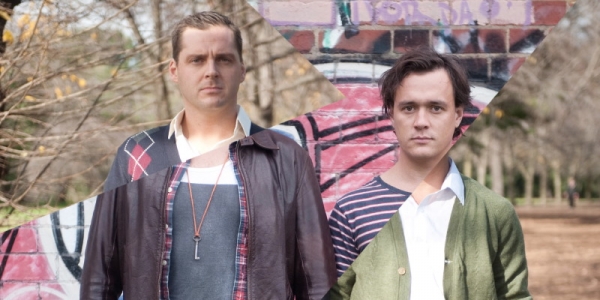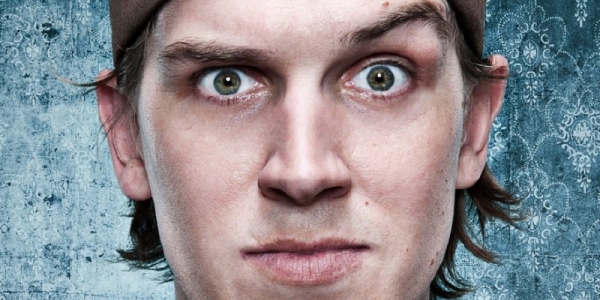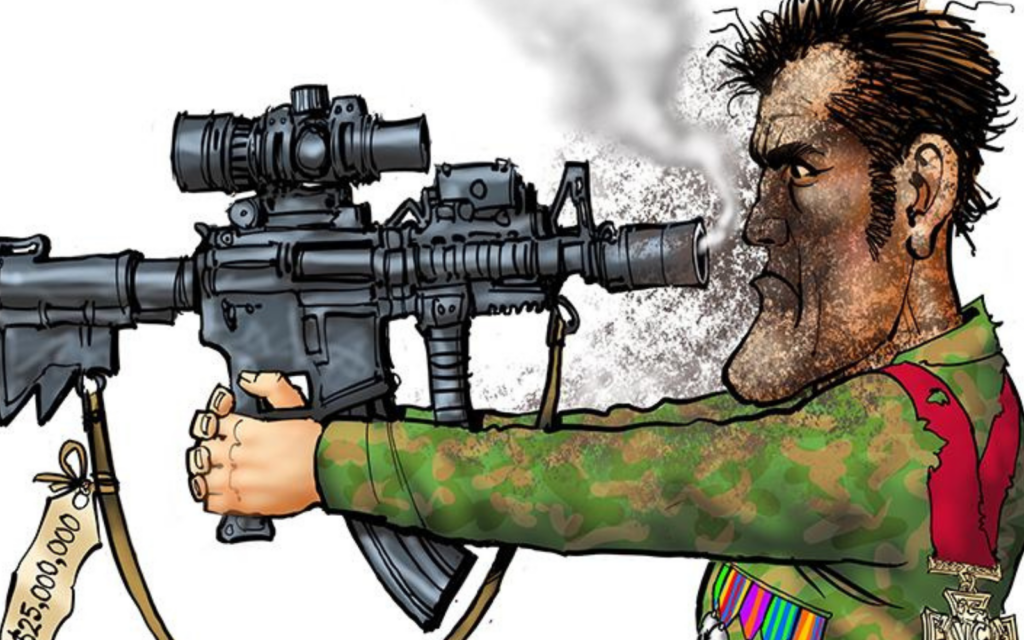A challenging work from debut British playwright Alexi Kaye Campbell, The Pride takes the form of two parallel narratives. Both of these look at the lives of gay men, but one strand of the story takes place in the repressive 1950s, the other in the seemingly-permissive present day. The hook is that its core three cast members play characters with the same names in both eras, and while their circumstances and situations are wildly different, there are all sorts of invisible threads connecting the two. Ben Geurens plays Oliver – in the ‘50s, he’s engaging in guilt-ridden, secretive affairs with other men, while in the present day, he’s foul-mouthed and promiscuous. Finding his way into these dual roles has proved one of the challenges of Geurens’ career.
“It’s been quite intense, but a good kind of intense,” he tells me. “I’ve had to go to a lot of very emotional places, but it’s been pure escapism. I’ve been getting lost in the process a bit, but that’s what it’s all about, really. We’re playing characters with the same names in two different time periods – I guess that’s one of the conventions that the playwright has used to connect these two parallel stories. They’re quite different characters, though, and in quite different storylines.” That device, Geurens says, is what makes the play so fascinating – the two versions of Oliver are ostensibly quite different, but both are going through the same sorts of problems in different generations. “It’s about the things that the gay community have had to deal with in different eras,” he says.
People speak about the ‘50s as a time of great repression for gay people, but The Pride’s parallel narratives suggest that the relative freedom of the present day comes with its own unique set of problems. These are the themes that drive the play, and Geurens has been pondering them since taking the role of Oliver. “There are deeper themes that I probably can’t talk about,” he says, “but it’s based around this idea of the gay community having to press through the injustice of the ‘50s, when being gay was illegal, and then in the contemporary storyline, you have this idea of where the gay community has gone, contrasting the repression of the ‘50s with the somewhat hedonistic world that exists today. The contemporary storyline is about the difficulty of finding love in that world.”
As a heterosexual man, playing the character of Oliver has been a learning experience for Geurens, but one he feels glad to have taken. “I go relatively deep when I play a character,” he tells me. “I tend to work from the inside – up to a point. I mean, I didn’t change my sexuality throughout the rehearsal process, but I learned to empathise, to explore the physicality of the character, and that was really interesting.” While the role has taken him him slightly out of his comfort zone, director Gary Abrahams bas been there to help. “Gary’s incredible,” Geurens says. “He’s an actor as well as a director, and he knows how to relate to us very well. He knows how to handle the material, and has been extremely helpful for me in getting to know the character of Oliver. He realised that being physical with a man was unexplored ground for me, so he was able to put his hand on my shoulder and talk me through it, get me into the character.”
The Pride is a relatively new play, performed in London for the first time at the Royal Court with JJ Feild and Bertie Carvel, and then on Broadway with Hugh Dancy and Ben Whishaw. As such, it still feels fresh, meaning that the cast of the Melbourne production have been free to find their own way into it. “It’s fantastic,” Geurens says, “it’s wonderful being able to do it this way. I don’t know a lot about what happened in the UK, or if they had the writer with them during the rehearsal process, but we’d never seen a production of this play before, so there has been a lot of exploring, and it’s been fantastic.”
Geurens has gone out of his way not to see any footage of Whishaw playing the role of Oliver on Broadway. “I haven’t seen anything like that,” he says. “To be honest, I tend not to seek that sort of thing out, because it can throw you off a little bit. I have a lot of respect for him as an actor, and he’s done some really great things, but I didn’t want to see him as Oliver, I was afraid of what might happen. You can find yourself emulating things, rather than finding a performance that comes from yourself. I avoid things like that, I don’t seek them out on the internet or anything. I go with instinct and what we come up with in rehearsals.”
The other key players in The Pride are Lyall Brooks and Ngaire Dawn Fair, and given the emotional intensity of the play, the cast has become quite tight-knit in recent weeks. “I hadn’t met any of them before,” Geurens says. “I’ve been living in Sydney for the last few years and just came down here. That’s one of those things when you’re acting – you get thrown to together with strangers and before you know it, you’re half-naked and sitting on each-other!”
BY ALISDAIR DUNCAN







